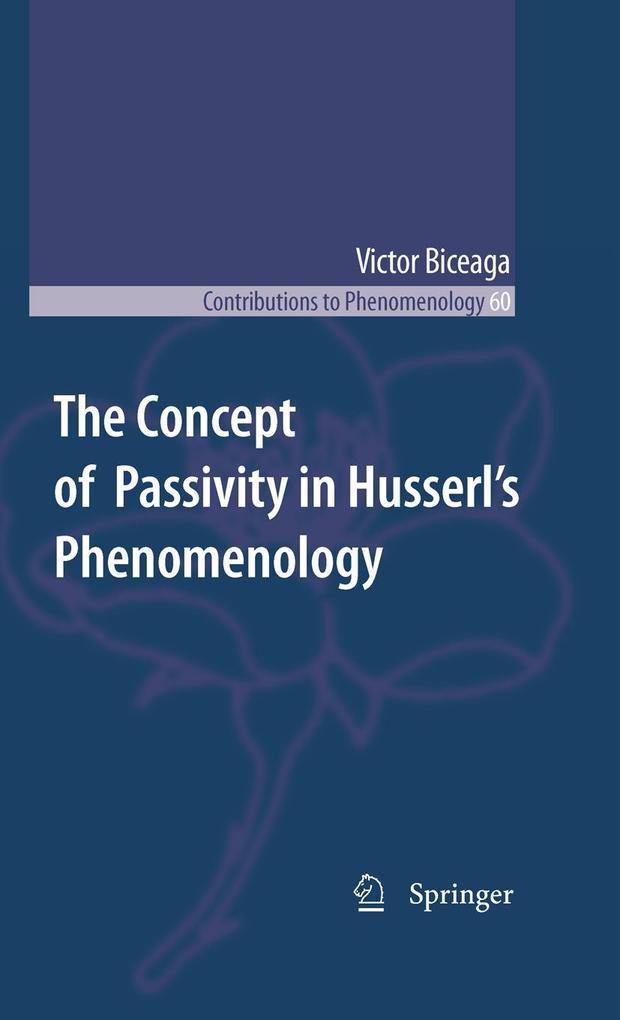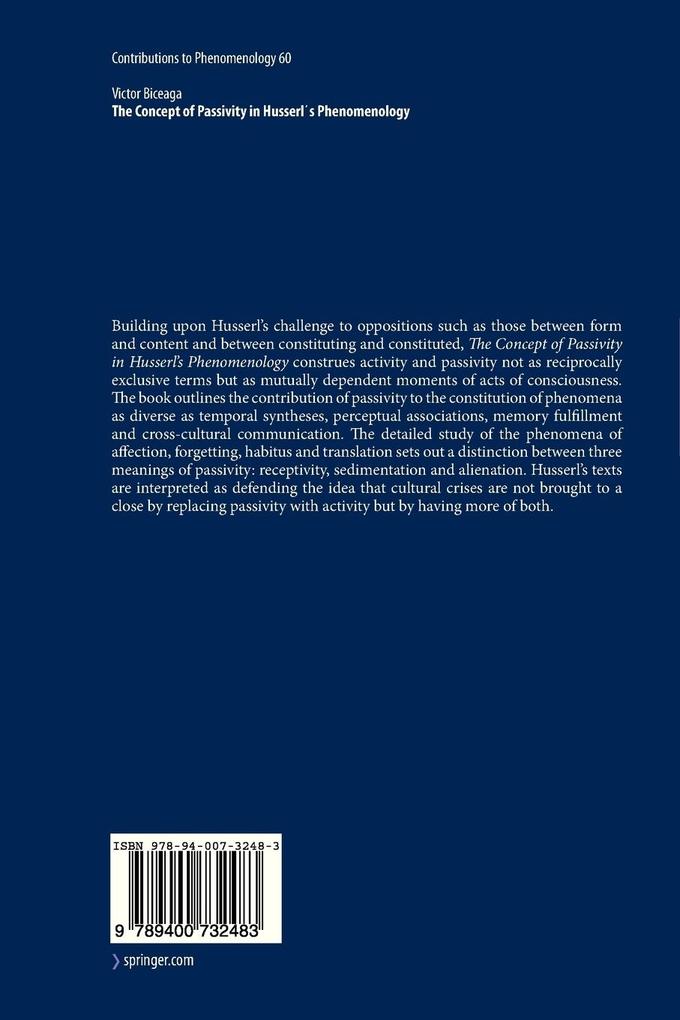Bücher versandkostenfrei*100 Tage RückgaberechtAbholung in der Wunschfiliale
NEU: Das Hugendubel Hörbuch Abo - jederzeit, überall, für nur 7,95 € monatlich!
Jetzt entdecken
mehr erfahren
Zustellung: Do, 04.09. - Sa, 06.09.
Versand in 2 Tagen
VersandkostenfreiBestellen & in Filiale abholen:
This book construes activity and passivity not as reciprocally exclusive terms but as mutually dependent moments of acts of consciousness. It claims that passivity makes it such that the sphere of ownness is always already alterated or infiltrated by alienness.
Building upon Husserl's challenge to oppositions such as those between form and content and between constituting and constituted, The Concept of Passivity in Husserl's Phenomenology construes activity and passivity not as reciprocally exclusive terms but as mutually dependent moments of acts of consciousness. The book outlines the contribution of passivity to the constitution of phenomena as diverse as temporal syntheses, perceptual associations, memory fulfillment and cross-cultural communication. The detailed study of the phenomena of affection, forgetting, habitus and translation sets out a distinction between three meanings of passivity: receptivity, sedimentation or inactuality and alienation. Husserl's texts are interpreted as defending the idea that cultural crises are not brought to a close by replacing passivity with activity but by having more of both.
Inhaltsverzeichnis
Introduction. 1. The traditionally subordinate role of passivity. 2. The problematic character of the notion of passive synthesis. 3. Static and genetic phenomenology. 4. Preliminary account of the composition of the passive sphere. 5. Synopsis. - I. Passivity and Self-temporalization. 1. Time-consciousness and association. 2. The three levels of temporality. 3. Double intentionality. 4. Time-consciousness and alterity. 5. Rhythm. - II. Originary Passivity. 1. Association as a topic of phenomenological inquiry. 2. Primordial associations. 3. Similarity and contrast as conditions of possibility for hyletic unities. 4. The lawfulness of associations. 5. Passivity and affection. - III. Secondary Passivity. 1. Memory as image consciousness. 2. Memory as reproductive presentification. 3. Memory and objectivity. 4. Forgetting. - IV. Passivity and Crisis. 1. The concept of habitus. 2. Passivity and language: the problem of translation. 3. Reason versus passivity. - V. Passivity and Alterity. 1. The problem of embodiment: passivity and self-alterity. 2. Passivity and intersubjectivity. 3. Passivity and alien cultures.
Produktdetails
Erscheinungsdatum
05. September 2012
Sprache
englisch
Untertitel
Auflage 2010.
XXIII, 220 p.
Sprache: Englisch.
Auflage
2010
Seitenanzahl
160
Reihe
Contributions to Phenomenology
Autor/Autorin
Victor Biceaga
Illustrationen
XXIII, 220 p.
Verlag/Hersteller
Produktart
kartoniert
Abbildungen
XXIII, 220 p.
Gewicht
254 g
Größe (L/B/H)
235/155/9 mm
ISBN
9789400732483
Entdecken Sie mehr
Bewertungen
0 Bewertungen
Es wurden noch keine Bewertungen abgegeben. Schreiben Sie die erste Bewertung zu "The Concept of Passivity in Husserl's Phenomenology" und helfen Sie damit anderen bei der Kaufentscheidung.










